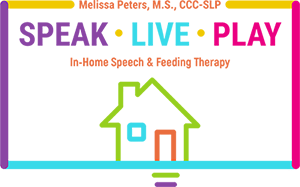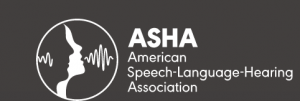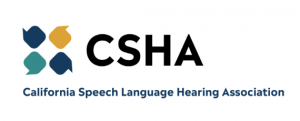Swallowing Therapy For Adults
Eating food requires different muscles to work together. First, you lift the food with a spoon, fork, or your hand and put it in your mouth. Then, your teeth cut the food into small pieces. After that, you use your swallowing muscles to swallow it. It may seem simple, but it actually needs precise muscle coordination and timing. What happens when there’s a mistake in this coordination? Sometimes, your drink goes down the wrong way, and you start coughing. Sometimes, a big piece of meat can even get stuck in your throat and make it hard to breathe. That’s why some adults may need swallowing therapy to help them eat safely.
When someone has trouble swallowing, it means they face difficulties whenever they eat or drink. Doctors use the term “dysphagia” to describe this condition. At Speak Live Play, we help people who have trouble swallowing. Our experts, called speech and swallow pathologists, focus on making sure patients get enough nutrition while also protecting their airways. This is called “swallowing therapy for adults.” Strength training is akin to teaching your muscles to function more efficiently, facilitating smoother consumption of food and beverages.
Speech-language pathologists, commonly known as speech therapists, are highly proficient professionals who provide comprehensive assistance to individuals across all age groups. They provide specialized care and support to those facing various impediments and conditions that impact their ability to speak or swallow. With their expertise, they help improve communication and enhance the swallowing mechanisms of their patients.
What are the main swallowing problems?
Swallowing is a complex process consisting of three stages. Swallowing disorders can arise when there are issues in one or more of these stages.
The first stage is the oral phase, which involves activities such as chewing, sucking, and moving food or drink into the throat.
The second stage is the pharyngeal phase, where the food is propelled down the throat through a squeezing motion. It is crucial to close off the airway during this phase to prevent choking.
The third stage is the esophageal phase. In this phase, the tube connecting the mouth to the stomach, known as the esophagus, opens and closes to push food down into the stomach. Suppose the muscles responsible for this function do not work properly. In that case, food can get stuck in the esophagus, leading to blockage and potential vomiting.
By understanding these stages and their significance, we can appreciate the importance of proper swallowing function for our overall well-being.
Swallowing problems can appear at any stage, although they are most common in older people. Dysphasia has many causes, and the treatment often depends on the condition causing it. The primary condition that causes swallowing problems includes:
Swallowing problems can appear at any stage, although they are most common in older people. Dysphasia has many causes, and the treatment often depends on the condition causing it. The primary condition that causes swallowing problems includes:
Damage to the part of the brain or nerves resulting from any of these conditions/diseases
- Brain injury
- Stroke
- Parkinson’s Disease
- Motor neuron disease
- Cerebral palsy
- Friedreich ataxia
- Alzheimer’s disease
- Multiple sclerosis (MS)
- Huntington’s disease
- Muscular dystrophy
Problems with your head or neck, such as:
- Mouth, esophagus, or throat cancer
- Poor dentition, such as missing teeth, decaying teeth, or dentures that do not fit well
- Neck or mouth surgery
Medication that causes a dry mouth, making it hard to swallow and chew
Why do people with swallowing problems need swallowing therapy?
Swallowing difficulties often result in food and drinks getting stuck in the airway. For most people, a minor amount of saliva entering the airways triggers an automatic cough reflex. While this is generally harmless, it’s not the case for individuals who have experienced a stroke or other neurological conditions that affect their reflexes. As a result, their protective reflexes, including coughing, may not function properly. Consequently, food and drinks can enter the open airway, leading to various health issues.
The lungs provide a warm and moist environment, making it an ideal breeding ground for bacteria. Accidental inhalation of food or beverages poses a serious risk of aspiration pneumonia, a potentially life-threatening condition. In hospital settings, patients are often put on nil by mouth, meaning they cannot consume any food or drink until a swallow and speech pathologist assesses the safety of their swallowing. Timely treatment is crucial to prevent complications and ensure patient well-being.
At Speak Live Play, we are dedicated to assisting individuals in effectively managing their swallowing difficulties after being discharged from the hospital. Our team of expert speech and swallowing therapists may recommend the following modifications to help address ongoing swallowing issues. Rest assured that our goal is to provide the highest level of care and support for your specific needs.
- Modifying food texture and drink thickness
- Recommending the correct sitting positions during mealtimes
- Therapy exercises that strengthen the muscles used while swallowing
- Teaching the various patient techniques to use while swallowing
Swallow therapy is beneficial for patients with acquired brain injuries as it strengthens the muscles involved in swallowing. Individuals with deteriorating or progressive conditions like Parkinson’s disease also require the expertise of a speech and swallowing pathologist. Through a tailored swallowing therapy program, strategies are provided to compensate for muscle weakness. At Speak Live Play, we go beyond therapy by educating caregivers on modifying food texture and drink thickness. Our purpose is to guarantee that patients can relish their meals and beverages without compromising their well-being, fostering a more joyful existence.
Signs of swallowing disorders and when to seek help
If you or someone you care about shows these signs, it might mean they have dysphagia, a condition that makes it hard to swallow. Here are some things to look out for:
- Coughing a lot while or right after eating or drinking.
- Having trouble chewing or swallowing. This can make eating take longer and require more effort.
- Making a gurgling or wet sound in the voice after eating or drinking.
- Having too much saliva in the mouth.
- Food or drinks come out of the mouth and get on clothes.
- Finding it hard to breathe during or after meals.
- Losing weight quickly without trying.
- Need help with simple tasks, like eating, which can be embarrassing.
When someone has trouble swallowing, they might also experience other problems, such as:
- Not getting enough nutrition, which can lead to weight loss.
- Feeling dehydrated because they can’t swallow properly.
- Getting pneumonia or other lung infections.
It’s important to remember that there is help available. Swallowing therapy for adults can make a big difference in managing dysphagia and improving quality of life.
Screening Assessment For Swallowing Therapy
Screening people for signs of swallowing difficulties is essential to prevent complications like malnutrition, choking, and pneumonia. At Speak Live Play, our highly skilled pathologist will assess how you eat and drink to ensure you receive the right swallowing therapy for adults. By identifying swallowing problems early, our specialist can provide tailored care and treatment. During the assessment, our speech therapist will ask you about your health history, including past surgeries, illnesses, and any swallowing issues you may have had. They will also perform an oral-motor assessment to check the functioning of your cranial nerves and the muscles involved in swallowing.
Additionally, our speech and swallowing therapist will evaluate how well your swallowing muscles handle different textures of food and drinks. They will observe if your swallowing changes when your muscles become tired. We will also review how well you apply our recommended swallowing strategies while eating and drinking. If necessary, the specialist may recommend further testing. Our adult swallowing therapy focuses on enhancing your swallowing ability, ensuring safety and comfort throughout the process.
What does adult swallowing therapy involve?
At Speak Live Play, we understand that every patient is different. That’s why we created a special program just for you! Our therapists will help you eat and drink safely. We use a special therapy called swallowing therapy for adults. It helps make your swallowing muscles strong. This therapy uses different techniques to make sure you can swallow safely. So, if you need help with swallowing, our unique and personalized swallowing therapy for adults is here for you!
- Treating your swallowing/chewing muscles
- Training the patient on ways to sit and hold their head when eating or drinking
- Test differently textured foods and find the ones that have an easy texture for you to swallow safely.
Our speech and swallow therapist will schedule a series of 45-minute sessions for you, typically conducted in the comfort of your own home. During these home-based sessions, we aim to facilitate familiar utensils for swallowing therapy. Additionally, we involve caregivers to enhance their understanding of your condition and provide guidance on how they can support you. If necessary, we may also refer you to other healthcare professionals specializing in managing associated swallowing issues. These medical experts may include: To effectively manage an underlying condition, it is recommended to consult with a General Practitioner (GP). Additionally, a review by an Ear, Nose, and Throat specialist (ENT) can be beneficial to assess potential reflux issues. Dietitians play a crucial role in ensuring adequate hydration and nutrition for the patient, while pharmacists can assist in the management of swallowing tablet medications.
Our specialized program for Swallowing Therapy at Speak Live Play is tailored to adults, offering comprehensive support to prevent dehydration, choking, and aspiration pneumonia. Our dedicated team of speech and swallow pathologists utilizes advanced techniques and tools to ensure safe swallowing, providing you with the essential nutrients for daily well-being. Regain your independence through our intensive therapy sessions, specifically designed to address any brain or nerve damage resulting from these conditions.
Take the first step towards improved swallowing health today with Speak Live Play’s Swallowing Therapy program. Contact us now to schedule a consultation and start your journey to a healthier, more independent life



